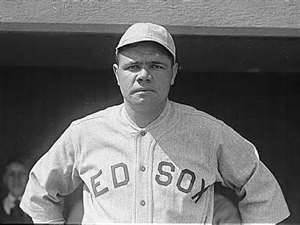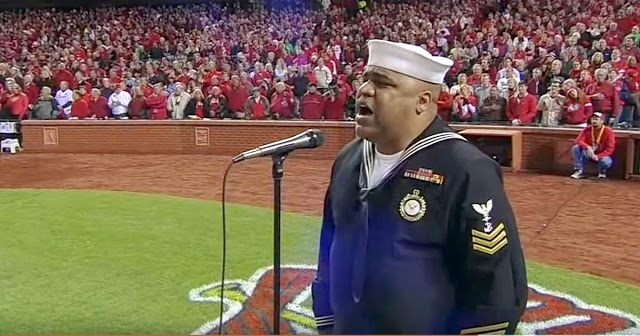National Anthem Not Always Featured at Sporting Events
Fans at American sporting events have not always heard “The Star-spangled Banner.” In fact, the song hasn’t always been the national anthem. People attending professional baseball, basketball, football, hockey, and soccer games and auto racing events will most likely hear the national anthem before the game or event begins. The same holds true for many amateur events in other sports across the country. Remembrances during the Civil War era include mentions of the song’s being played at athletic events. One report from the Brooklyn Daily Eagle in 1862 says that the song was played a few times during the borough’s first professional baseball game. During the rest of the 19th Century, professional and amateur baseball games and college football games occasionally featured the song as well. It was certainly not an everyday occurrence, however. In the last few years of the 19th Century, some baseball teams had the “Star-spangled Banner” played during games, but the practice was sporadic. The first well-known 20th Century playing of “The Star-spangled Banner” at a sporting event occurred during baseball’s 1918 World Series. World War I was still going on in September, when the World Series began. (The war would end on November 11.) Some of the players were either veterans or on furlough from military service. Also, the day before the first game of the World Series, on September 4, a bomb explosion at the Chicago Federal Building killed four people and injured 30. The World Series that year featured the Chicago Cubs and the Boston Red Sox, and the first game was scheduled to take place in Chicago on September 5.
The same thing happened in the next two games, also in Chicago. When the World Series moved to Boston, organizers there decided to have their own military band play the song before the game started, accompanied by the recognition of wounded soldiers who were in attendance. 
The song featured in all six games of the 1918 World Series, which Boston won (with the last game occurring on September 11). The practice caught on slowly. In the next two decades, teams had the song played at holiday games and at World Series games. The song itself did not become the national anthem until 1931. The advent of World War II, and especially’s America’s entry into the war, brought on a period of patriotic fervor, and the song was played more and more, especially at baseball games but also at events in other sports.
As the 20th Century came to a close, though, it became common practice for “The Star-spangled Banner” to feature at most sporting events around the country. This practice has continued into the 21st Century. |
|
Social Studies for Kids
copyright 2002–2026
David White



 The first game was a low-scoring one. Each team started its best pitcher. For the Cubs, that was Hippo Vaughn; for the Red Sox, that was
The first game was a low-scoring one. Each team started its best pitcher. For the Cubs, that was Hippo Vaughn; for the Red Sox, that was  Playing of the national anthem wasn’t an everyday thing for all teams, however. Baseball’s Baltimore Orioles decided in the 1950s to play the anthem only on special occasions. The Chicago Cubs felt the same way in the 1960s, particularly in the wake of the Vietnam War. Baseball’s other professional team, the White Sox, played “God Bless America” instead during this time. (That song is also played at many baseball games still; that practice began after the attacks on the World Trade Center and the Pentagon on Sept. 11, 2001 and continues today, in many ballparks, usually with a professional (who is sometimes a military veteran) leading the singing.)
Playing of the national anthem wasn’t an everyday thing for all teams, however. Baseball’s Baltimore Orioles decided in the 1950s to play the anthem only on special occasions. The Chicago Cubs felt the same way in the 1960s, particularly in the wake of the Vietnam War. Baseball’s other professional team, the White Sox, played “God Bless America” instead during this time. (That song is also played at many baseball games still; that practice began after the attacks on the World Trade Center and the Pentagon on Sept. 11, 2001 and continues today, in many ballparks, usually with a professional (who is sometimes a military veteran) leading the singing.)
